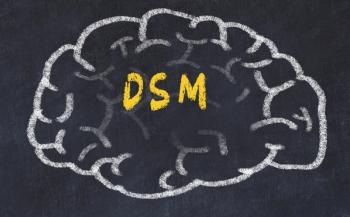
Mayday! Mayday! We’re Lonely
When the Surgeon General notices the loneliness problem, it is definitely a mayday moment.
PSYCHIATRIC VIEWS ON THE DAILY NEWS
You may have noticed that the Psychiatric Times editors have so importantly welcomed us to
Note, too, that the focus designated for this month is mental health, not mental (or psychiatric) disorders. Achieving mental health is not the same as treating mental disorders. Reaching the self-actualization pinnacle on
This is why yesterday’s column on rejection is so relevant to this mental health month. It is also why I am focusing on loneliness today. There are so many social psychiatric problems like this one that influence our mental health and that call out for our help in a “Mayday!” series. They include the isms like
Because of our mental health and mental ill health problems, I have been advocating in other columns for a
Yesterday, Murthy exemplified this concern with his guest essay for The New York Times titled “
Hot off the press, as I was finishing this column early this morning, he released his promised “
Why now? Loneliness has been rising for years, connected to the increase of online relationships compared to live ones. Then, about 3 years ago, the COVID pandemic came. Although the pandemic and the necessary self-isolation seems to be slowing down, it probably contributed much to the escalation of
The other challenge may be recognizing that one is more lonely. You can be lonely around others. It is the quality of the connection that matters.
Certainly, this loneliness can spill out into clinical psychiatry and our therapeutic alliances. The fear and uncomfortableness of the loneliness may even partially explain a preference for telepsychiatry when live interactions are possible.
One guidepost is to think back to before the pandemic and reflect on how satisfying our relationships were. Did you feel socially fulfilled then? Do you now? Our souls need the satisfying nourishment of good people as much as our bodies need the adequate nourishment of good food.
Dr Moffic is an award-winning psychiatrist who has specialized in the cultural and ethical aspects of psychiatry. A prolific writer and speaker, he received the one-time designation of Hero of Public Psychiatry from the Assembly of the American Psychiatric Association in 2002. To create a better world, he is an advocate for treating mental health issues related to climate instability, burnout, Islamophobia, and anti-Semitism. He serves on the Editorial Board of Psychiatric Times™.
Newsletter
Receive trusted psychiatric news, expert analysis, and clinical insights — subscribe today to support your practice and your patients.







